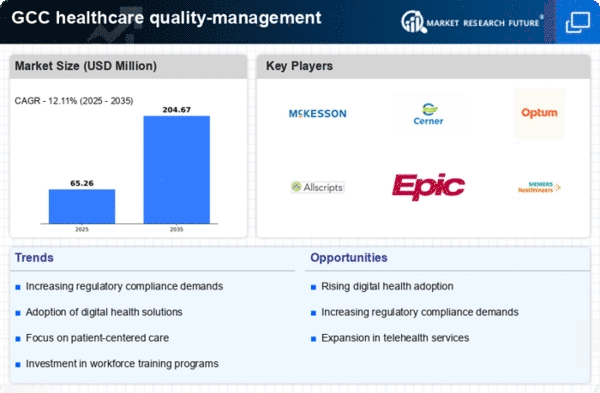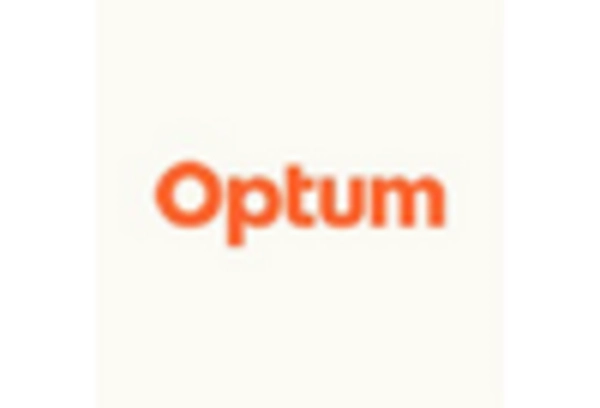Increased Focus on Patient Safety
Patient safety has emerged as a critical focus within the healthcare quality-management market. With rising incidences of medical errors and adverse events, healthcare organizations are prioritizing safety protocols and quality assurance measures. Regulatory bodies in the GCC are emphasizing the need for stringent safety standards, which has led to the implementation of comprehensive quality management systems. This shift is reflected in the growing number of accreditation programs aimed at enhancing patient safety. As a result, healthcare providers are likely to allocate more resources towards training and quality improvement initiatives, thereby strengthening their commitment to patient safety.
Government Initiatives and Funding
Government initiatives and funding are significantly influencing the healthcare quality-management market. In the GCC, various governments are launching programs aimed at improving healthcare quality and accessibility. These initiatives often include financial incentives for healthcare providers to adopt quality management practices. For instance, funding for quality improvement projects has increased, with some countries allocating up to 15% of their healthcare budgets towards these efforts. Such government support not only encourages healthcare organizations to enhance their quality management systems but also fosters a competitive environment that drives overall improvements in healthcare delivery.
Technological Advancements in Healthcare
Technological advancements are playing a pivotal role in shaping the healthcare quality-management market. Innovations such as electronic health records (EHRs), telemedicine, and data analytics are being integrated into healthcare systems, enhancing the ability to monitor and improve quality. These technologies facilitate real-time data collection and analysis, enabling healthcare providers to identify areas for improvement. The GCC region is witnessing a significant investment in health tech, with expenditures expected to reach $10 billion by 2026. This influx of technology not only streamlines operations but also fosters a culture of continuous quality improvement within healthcare organizations.
Rising Demand for Quality Healthcare Services
The is experiencing a notable surge in demand for quality healthcare services across the GCC region. This demand is driven by an increasing awareness among patients regarding the importance of high-quality care. As healthcare providers strive to meet these expectations, they are investing in quality management systems to enhance service delivery. According to recent data, the market is projected to grow at a CAGR of approximately 12% over the next five years. This growth indicates a robust shift towards prioritizing quality in healthcare, compelling organizations to adopt comprehensive quality management frameworks to ensure patient safety and satisfaction.
Growing Importance of Data-Driven Decision Making
The growing importance of data-driven decision making is reshaping the healthcare quality-management market. Healthcare organizations are increasingly relying on data analytics to inform their quality improvement strategies. By leveraging data, providers can identify trends, measure performance, and implement evidence-based practices. This trend is particularly pronounced in the GCC, where healthcare systems are investing in advanced analytics tools to enhance operational efficiency. The ability to make informed decisions based on data is likely to lead to improved patient outcomes and satisfaction, thereby reinforcing the necessity for robust quality management frameworks in healthcare.
















